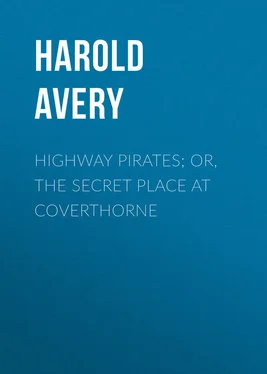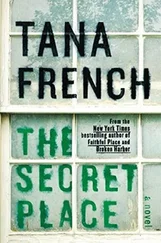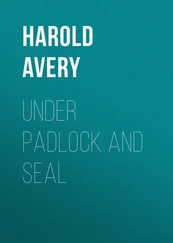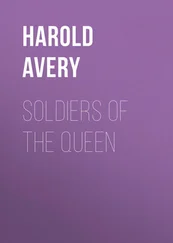Harold Avery - Highway Pirates; or, The Secret Place at Coverthorne
Здесь есть возможность читать онлайн «Harold Avery - Highway Pirates; or, The Secret Place at Coverthorne» — ознакомительный отрывок электронной книги совершенно бесплатно, а после прочтения отрывка купить полную версию. В некоторых случаях можно слушать аудио, скачать через торрент в формате fb2 и присутствует краткое содержание. ISBN: , Жанр: foreign_antique, foreign_prose, foreign_children, на английском языке. Описание произведения, (предисловие) а так же отзывы посетителей доступны на портале библиотеки ЛибКат.
- Название:Highway Pirates; or, The Secret Place at Coverthorne
- Автор:
- Жанр:
- Год:неизвестен
- ISBN:http://www.gutenberg.org/ebooks/33680
- Рейтинг книги:3 / 5. Голосов: 1
-
Избранное:Добавить в избранное
- Отзывы:
-
Ваша оценка:
- 60
- 1
- 2
- 3
- 4
- 5
Highway Pirates; or, The Secret Place at Coverthorne: краткое содержание, описание и аннотация
Предлагаем к чтению аннотацию, описание, краткое содержание или предисловие (зависит от того, что написал сам автор книги «Highway Pirates; or, The Secret Place at Coverthorne»). Если вы не нашли необходимую информацию о книге — напишите в комментариях, мы постараемся отыскать её.
Highway Pirates; or, The Secret Place at Coverthorne — читать онлайн ознакомительный отрывок
Ниже представлен текст книги, разбитый по страницам. Система сохранения места последней прочитанной страницы, позволяет с удобством читать онлайн бесплатно книгу «Highway Pirates; or, The Secret Place at Coverthorne», без необходимости каждый раз заново искать на чём Вы остановились. Поставьте закладку, и сможете в любой момент перейти на страницу, на которой закончили чтение.
Интервал:
Закладка:
"I keep hearing that funny noise," I said, "and I can't make out where it comes from."
He made no reply, but stood at my side listening till the sound came again, this time a long, mournful wail like that of some one in pain. I turned, and was surprised to find that Miles's face was almost bloodless. He slipped his arm within mine, and drew me towards the door.
"What can it be?" I asked.
"No one will ever know for certain," he answered, speaking almost in a whisper. "The room is haunted!"
"Haunted!" I cried, stopping short as I gained the passage. "You don't believe in ghosts?"
"I believe in that one," he answered. "I've heard it too often to have any doubt. That's the reason we never use the room; only mother doesn't like it talked about, because it only frightens the servants. People have tried to make out it was the wind; but though we've blocked up the chimney, and have stopped every crack and hole we could find, it makes no difference to the sound, and no one can tell from what part of the room it comes. Besides, the story is that my great-grandfather died there. When he was an old man he always went about humming to himself, and making just the same sort of noise that has been heard in the room ever since his death. All the people round know about it, and they call it the Singing Ghost of Coverthorne."
"O Miles," I began, "you don't believe such stuff as that?"
"I know you'll think me a coward," he interrupted. "I'm not afraid of most things, but I own frankly I hate to go near that horrid room. Mother had it furnished, and tried to use it one winter; but at the end of a month she got so frightened of the noise that she declared she'd never sit there again."
"I don't mind your ghost," I exclaimed, laughing. "You wait here, and I'll go back and listen to it again."
I entered the room, closed the door behind me, and stood waiting in a corner of the floor. I tried to persuade myself that I was not in the least frightened, but my heart beat faster than usual, and I strained my ears with almost painful intentness to catch the slightest sound. Within the last few moments the place seemed to have grown more cold, damp, and earthy than before; it felt like standing in a vault. Then, whether from the floor, ceiling, or solid oak panelling on the walls, I could not tell, came once more that mysterious sound, as though a person were humming with closed lips. I cast one hasty glance round the room, and made hurriedly for the door. Miles was still waiting in the passage.
"You didn't stay very long," he remarked with a quiet smile.
CHAPTER V.
NICHOLAS COVERTHORNE SHOWS HIS HAND
In due course the summer holidays came to an end, and Miles and I met again at school. I had not been in his company five minutes before I noticed that his face wore a different look from when I had seen him last at Coverthorne; indeed, he seemed once more as sad and dejected as he had appeared immediately after his father's funeral.
"What's the matter with you? Have you been ill?" I asked; but he only shook his head and gave evasive replies.
The first day of the half was always one of excitement. The reunion of old friends, the appearance of new boys and masters, the changes of classes and dormitories, all aroused our lively interest; but Miles seemed in no mood to join in our fun. He slipped out of the playground as soon as work was finished, and went off for a walk alone.
Thinking that his return to school had in some way recalled the consciousness of his bereavement, I allowed him for a time to go his own way; but when tea was over I determined to find him, and at least offer him some expression of sympathy. After a little search I discovered him standing with his back against a tree moodily chewing a piece of straw.
"There is something the matter with you," I said. "Why won't you tell me? Is it private?" My arm seemed naturally to slip through his as I asked the question, and perhaps the action, simple as it was, gave him a fresh assurance of my friendship, and influenced him to unburden himself of what was on his mind.
"There's no harm in my telling you, Sylvester," he replied. "I know you won't let it go any further. I'm upset by what's happened at home."
"Something that has happened since I stayed with you?" I asked.
"Well, yes," he answered – "that is, it's come to a head since your visit. I daresay while you were with us you noticed that there was something wrong, and that my mother often seemed worried and depressed. It was not till after you'd gone that I found out what was really the matter."
He paused as though expecting me to speak, but I made no interruption.
"As I've already told you, my father made a will about two years ago," continued Miles. "He signed it at Mr. Denny's office, and took it away with him; but now it can't be found. My mother always thought that it was in the secret drawer of the bureau; but it proved to be empty when she went to look. Then, as I've mentioned before, the idea occurred to her and Mr. Denny that it had been put away for safety in the secret place. If that's the case, then goodness knows if either the papers or the hidden chamber will ever be discovered. At least so far all attempts have proved a failure. Mr. Denny even goes so far as to suggest that the so-called hiding-place may be nothing but a small cavity in the wall behind some sliding panel; though he admits that, from a remark he once heard my father make, he had always believed it was a place large enough to conceal a man. If it's only a little hole somewhere in the stonework, we might pull the house down before we found it."
"But see here," I interrupted. "I don't understand anything about lawyers' business; but even if your father's will were lost, I suppose the property will come to you all the same, seeing that you are his only son."
"Wait a moment till I have finished the story," continued my companion. "When I talked to you about this once before, I described how my uncle came to Coverthorne soon after my father's funeral, and spoke to my mother about a secret reconciliation between the brothers, and hinted at a matter of business which he would discuss at some future time, when she should have recovered somewhat from the shock of her loss. My mother was surprised, and thought it very strange, as she had heard no word from her husband to lead her to suppose that he had made up the quarrel with his brother. The matter, I say, puzzled her a good bit, but did not cause her any actual uneasiness till Mr. Denny came one day and told her privately of an extraordinary rumour he had heard in Rockymouth, to the effect that Uncle Nicholas had told some one that my father had made a will leaving him half the property, that being the fair share which he ought to have had after my grandfather's death. This rumour, coupled with what my uncle had already said to her, caused my mother to begin to fear that something was wrong. She wanted to write to Uncle Nicholas right away; but Mr. Denny advised her to say nothing till she heard from him. In the meantime they made further attempts to find the will which my father had signed in the lawyer's office, Mr. Denny knowing the terms of this one, and hoping it would bear a more recent date than any other which my father might have made. You see, if a man makes more than one will it's the last that counts, and the others are worth nothing."
I nodded to show that I understood this explanation.
"About a week or ten days after you left," went on Miles, "one afternoon Uncle Nicholas called, and out came the whole affair. He produced the will of which we had already heard the rumour, and said that my father had executed it at the time that they had made up their quarrel. The terms were exactly what Mr. Denny had already hinted – that if my father died first, half the estate was to go to Nicholas; in case, however, Nicholas did not survive his brother, the whole property would come to my mother and myself. Having read the paper, he once more described how my father had been prompted to take this step out of a sense of justice; and then he added that, after all, it would make very little difference to any of us, since he himself had no children, and I should be his heir. He would only enjoy his share during the rest of his life, which at most would not be many years. From the first my mother was amazed and incensed at this disclosure. Though she saw the signature at the foot of the document, and recognized it as my father's handwriting, yet she could not but regard the whole thing as an unfair and wicked attempt on my uncle's part to rob us of our possessions. My father had been so open in his dealings, and she had always shared his confidence; it seemed, therefore, almost impossible that he should have taken such a step without at least telling her of his intentions. The interview soon became a stormy one. Uncle Nicholas, in a cold, half-ironical manner, said he felt sure that my mother would not oppose her dead husband's wishes; and gave as the reason for our not finding another will that my father had no doubt destroyed the first before making the second. He pooh-poohed the idea of any document being deposited in the hidden chamber, saying that the so-called secret place was merely a hole in one of the chimneys, which had been built up in my grandfather's time to prevent the birds building there and making a mess. My mother, however, would not be convinced, though this fresh will was clearly of a later date than the one for which she had been searching. She would not admit the justice of my uncle's claims, reminding him that he had received his portion from his father in money. She accused him of attempting to deprive his brother's widow and only son of their heritage, and at length refused to discuss the subject any further, directing him to communicate in future with our lawyer, Mr. Denny.
Читать дальшеИнтервал:
Закладка:
Похожие книги на «Highway Pirates; or, The Secret Place at Coverthorne»
Представляем Вашему вниманию похожие книги на «Highway Pirates; or, The Secret Place at Coverthorne» списком для выбора. Мы отобрали схожую по названию и смыслу литературу в надежде предоставить читателям больше вариантов отыскать новые, интересные, ещё непрочитанные произведения.
Обсуждение, отзывы о книге «Highway Pirates; or, The Secret Place at Coverthorne» и просто собственные мнения читателей. Оставьте ваши комментарии, напишите, что Вы думаете о произведении, его смысле или главных героях. Укажите что конкретно понравилось, а что нет, и почему Вы так считаете.












